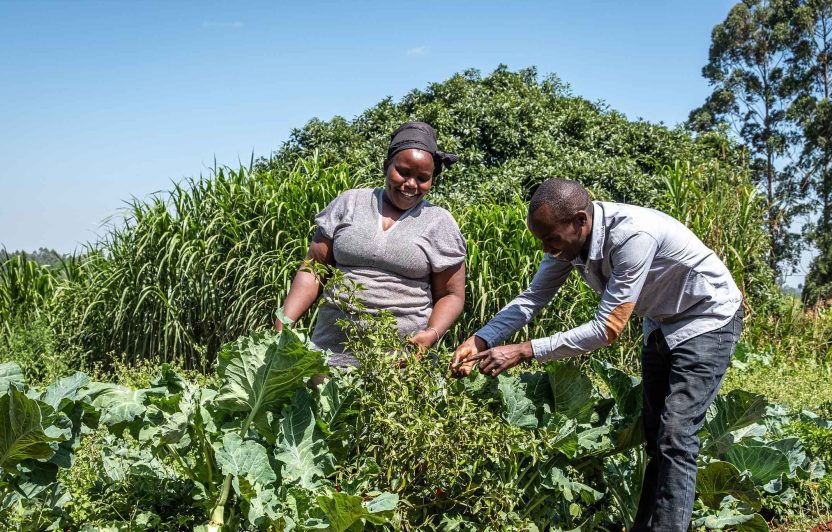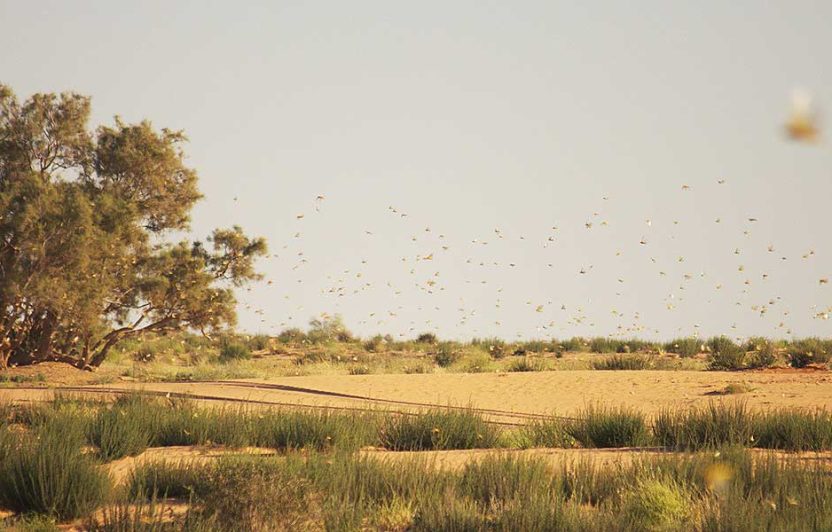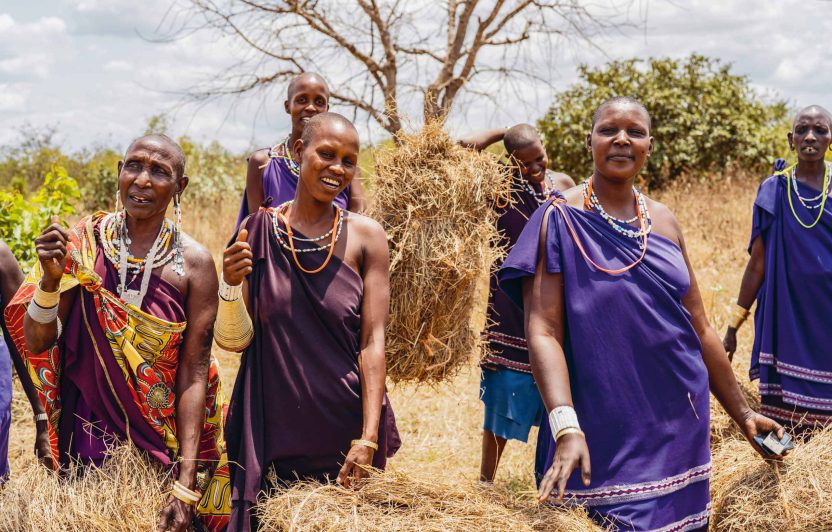Weather patterns are becoming increasingly unpredictable which hampers agricultural production in many tropical countries. Intensity and frequency of rainy and dry periods are altering inevitably and poor harvests are becoming more and more common. This situation is exacerbated by the overexploitation of forests: Without a year-round vegetation cover the sensitive soils are unprotected against sun, wind and weather. Rainfall runs off rapidly instead of feeding the soil or top up the groundwater.
Smallholders are taking action
Supported by our project partner ICE (Institute for Culture and Ecology), 1,500 smallholders in four counties located at the foot of Mount Kenya are showing what can be done to tackle the consequences of this trend. In agroecological trainings, they have learned how to increase water retention, e.g. by creating terraced fields and specifically planting trees and shrubs to prevent erosion, or how to increase soil fertility through composting. They further set up community saving groups for the purchase of efficient woodstoves to reduce the demand for firewood, or modern beehives that improve the pollination in the forest and on the fields.
Since the start of Biovision’s partnership with ICE in 2012, the project area has expanded. The project approach was first developed and applied in the counties of Tharaka-Nithi and Meru. In the last three years, groups of farmers from Embu and Murang’a have also benefited from the trainings. ICE thereby realized that each region has quite different needs, mostly depending upon the type of natural landscape: for example, in the dry savannahs of Tharaka-Nithi, farmers are particularly interested in avoiding erosion and beekeeping whereas those living in the humid Murang’a are keen on vegetable and fruit production. But the farmer groups have one thing in common: By diversifying their sources of income, they are better able to cope with irregular dry and rainy seasons.
What next?
The experience gained will feed directly into the next phase of the project when the focus will be on skills development for beekeeping and agroforestry as well as providing access to sales markets. The project will thereby encourage alternative sources of income and alleviate the pressure on natural resources. ICE will continue to run the popular and well-established agricultural trainings. A new development will be Biovision’s collaboration in development of advocacy strategies that raise the profile of agroecological issues on the political stage. ICE’s achievements and broad experience from working with more than 50 farming organisations provide an excellent basis for this next step.
Intergenerational dialogue
With socio-economic change valuable knowledge on how to use soils, water and seeds sustainably is being lost. With our project partner, the Institute for Culture and Ecology (ICE), we are promoting the recovery of traditional knowledge and it’s combination with current research. For example, the project is producing maps of the local area and seasonal calendars showing traditional plant varieties, which are often more resistant. The maps highlight the changes in landscapes between then and now and provide a glance at future development when global warming will cause further changes.




